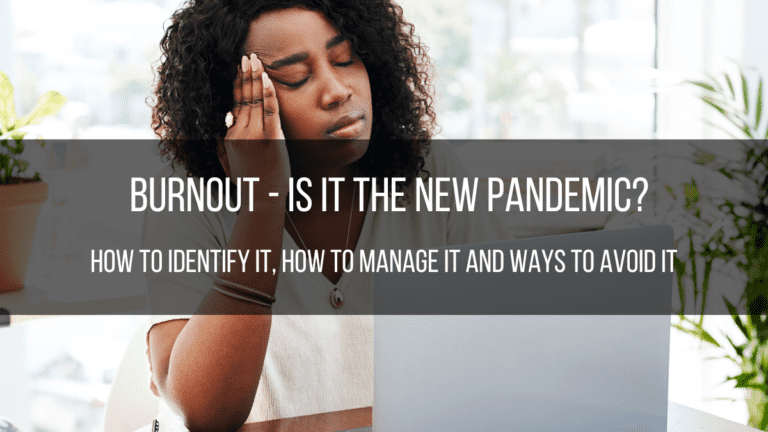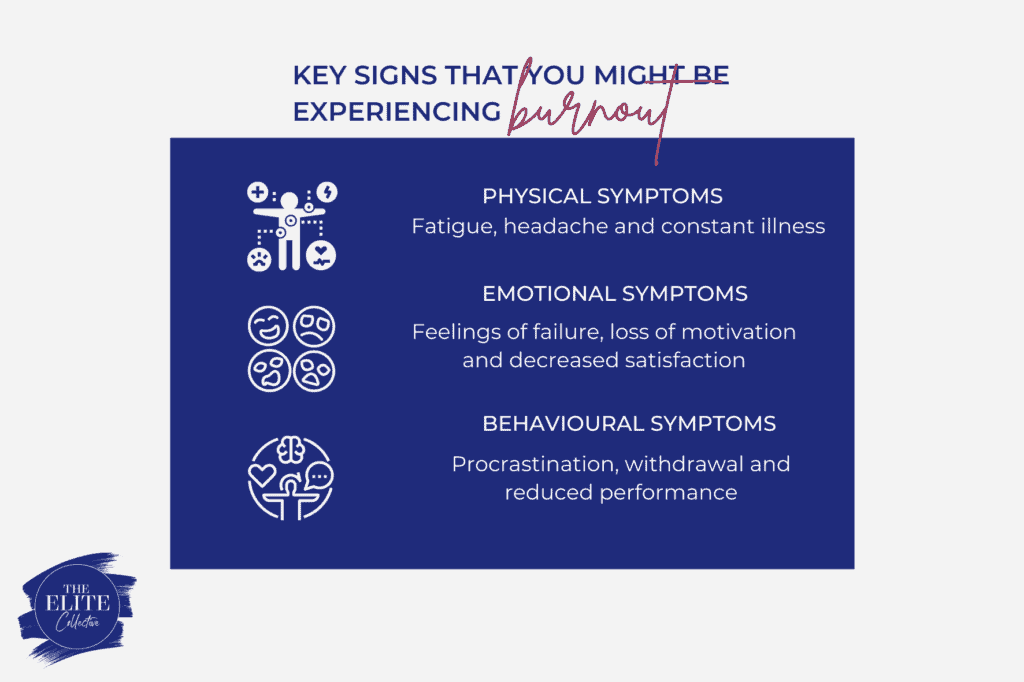 Jharna Hogan
Jharna Hogan

According to recent research statistics, nearly half of Australian employees have admitted that they feel burnt out, and it’s a statistic that seems to be increasing. In the last quarter of 2021, 34% of Australian employees admitted to suffering burnout, while that figure had risen to 46% by the first quarter of 2022. So what is burnout, and why is everyone suddenly feeling the brunt of it?
Burnout is ‘a complete state of mental, physical and emotional exhaustion’. Burnout can be caused by stressful work environments, too many responsibilities, chronic stress and overwhelm – in short, the environment that has become the norm in many workplaces across Australia.
There’s no arguing that we’ve all had a challenging few years compliments of the ‘C’ word. We’ve experienced disruption to every aspect of our lives, and with that came the advent of working from home for many employees. While for some, working from home was a dream come true (Hello, working from bed in your Oodie!), for others, it wasn’t a welcome change. The boundaries between work life and home life have become blurred – where it was once easy to switch off from work the second you walked out of your workplace, when your home becomes your workplace, it can be hard to ever truly switch off. That pressure to always be ‘on’ for work is a huge factor in burnout – if you’re not getting any time to step away from your work for self-care activities, burnout can creep in very quickly.

Putting boundaries in place can be a tough thing to do, but they can help you preserve your mental health by establishing clear limits with your employer on what is and isn’t acceptable to you. Determine what is important to you – is it being able to switch off as soon as you finish your work day, or is making sure that you take your lunch break critical to you so you can eat a proper meal and leave the office for a walk?
While some employees are embracing the ‘Quiet Quitting’ trend, setting boundaries can be as simple as taking an uninterrupted lunch break each day, not checking emails outside of standard work hours and putting your phone on silent once the work day is done.
There’s still a lot of work to be done to remove the stigma around mental health, and talking about it with your friends, family, and colleagues is a great start. World Mental Health Day is coming up on 10 October, and Mental Health Australia is asking Australians to make a mental health promise to remind themselves to look after their mental well-being – this could be a great first step in prioritising your mental health. Click here for more information on World Mental Health Day and how you can get involved.
The team from Mental Health Australia have some simple tips to look after your mental health, including:
A Mental Health Day is taking a day off work to prioritise your mental health. You might be overwhelmed, stressed out, feeling negative and simply unable to face work that day – whatever the reason, it’s just as valid as taking a day of sick leave for a physical ailment.
Taking a Mental Health Day has grown in popularity in recent times. As we all become more and more open about our mental health and prioritise it just as we do our physical health, it’s becoming as normal to take a day off to care for our mental health as it is to take a day off to care for our physical health.
That being said, there is still a hesitance for many people to inform their boss that they need a mental health day. It’s entirely up to you whether you advise your boss of the reason for taking a sick day.
If you have a supportive boss, you may choose to divulge why you need the day off. If you are in a toxic work environment where taking a day to care for your mental health would be seen as a weakness, it might be best to keep the reason for your day off to yourself. ABC has a great piece here on how to take a Mental Health Day and not feel guilty about it.
There’s a range of confidential options available to you if you feel like you need some extra support with your mental health. These include:
Employee Assistance Program (EAP)
Your employer may have a free and confidential EAP service that you can access. These programs vary from employer to employer but usually offer a few free sessions with a registered psychologist. They are confidential, and your employer will not be notified that you are accessing the service. Check with your employer for more details.
Lifeline
Lifeline is a free, 24/7 phone service providing all Australians experiencing emotional distress with access to 24-hour crisis support and suicide prevention services. You can call Lifeline on 13 11 14 or access online chat support at www.lifeline.org.au
BeyondBlue
BeyondBlue provides information and support for anxiety, depression and suicide prevention for everyone in Australia. Their free telephone and online counselling service is open 24/7 – call 1300 224 636 or visit www.beyondblue.org.au
See your GP for a Mental Health Plan
Your GP can offer you a range of support options, including access to a Mental Health Plan that will entitle you to 20 sessions with a mental health professional each calendar year. For more information, visit the Services Australia website here.
If you’ve concluded that a few mental health days aren’t going to cut it and you need to find a workplace that is more conducive to positive mental health, the team at Elite would love to support you with the next steps in your journey. Here’s how we can help:
Our team of professional resume writers are located across Australia, specifically in Canberra, Melbourne and Sydney. We have clients throughout Australia who rave about our professional resume writing services, job application support and interview coaching. Get in touch with us today, and make your next career move with the support of a team of professionals.
We respectfully acknowledge the traditional custodians of the land upon which we live and work, the Ngunnawal people.
We acknowledge and respect their continuing culture and the contribution they make to the life of this city and this region, and extend that same respect to all Aboriginal and Torres Strait Islander people.